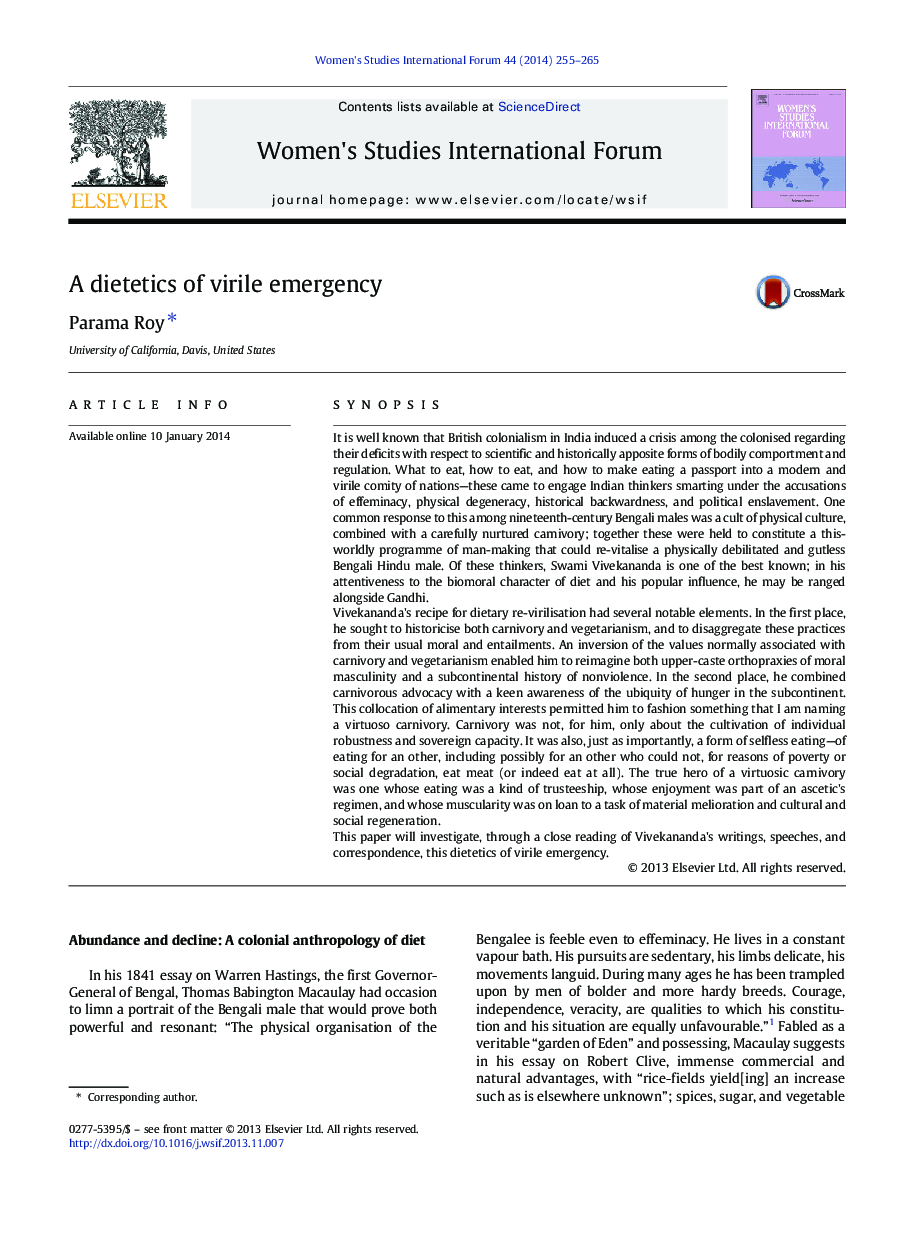| Article ID | Journal | Published Year | Pages | File Type |
|---|---|---|---|---|
| 376124 | Women's Studies International Forum | 2014 | 11 Pages |
SynopsisIt is well known that British colonialism in India induced a crisis among the colonised regarding their deficits with respect to scientific and historically apposite forms of bodily comportment and regulation. What to eat, how to eat, and how to make eating a passport into a modern and virile comity of nations—these came to engage Indian thinkers smarting under the accusations of effeminacy, physical degeneracy, historical backwardness, and political enslavement. One common response to this among nineteenth-century Bengali males was a cult of physical culture, combined with a carefully nurtured carnivory; together these were held to constitute a this-worldly programme of man-making that could re-vitalise a physically debilitated and gutless Bengali Hindu male. Of these thinkers, Swami Vivekananda is one of the best known; in his attentiveness to the biomoral character of diet and his popular influence, he may be ranged alongside Gandhi.Vivekananda's recipe for dietary re-virilisation had several notable elements. In the first place, he sought to historicise both carnivory and vegetarianism, and to disaggregate these practices from their usual moral and entailments. An inversion of the values normally associated with carnivory and vegetarianism enabled him to reimagine both upper-caste orthopraxies of moral masculinity and a subcontinental history of nonviolence. In the second place, he combined carnivorous advocacy with a keen awareness of the ubiquity of hunger in the subcontinent. This collocation of alimentary interests permitted him to fashion something that I am naming a virtuoso carnivory. Carnivory was not, for him, only about the cultivation of individual robustness and sovereign capacity. It was also, just as importantly, a form of selfless eating—of eating for an other, including possibly for an other who could not, for reasons of poverty or social degradation, eat meat (or indeed eat at all). The true hero of a virtuosic carnivory was one whose eating was a kind of trusteeship, whose enjoyment was part of an ascetic's regimen, and whose muscularity was on loan to a task of material melioration and cultural and social regeneration.This paper will investigate, through a close reading of Vivekananda's writings, speeches, and correspondence, this dietetics of virile emergency.
